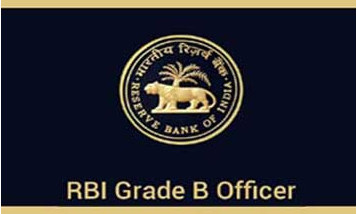The RBI Grade B Examination is a highly competitive exam conducted by the Reserve Bank of India (RBI) to recruit candidates for the position of Grade B Officer in various departments of the RBI. The Grade B officers play a significant role in the functioning of the central bank of India, handling various roles such as policy formulation, regulatory functions, economic research, and supervision.
Overview of the RBI Grade B Exam
The RBI Grade B Exam consists of three stages:
- Phase I (Preliminary Examination)
- Phase II (Main Examination)
- Interview
Each of these stages has a distinct role in the selection process, and candidates must clear each phase to move on to the next.
1. Phase I (Preliminary Examination)
The Phase I exam is an online objective-type test that serves as a screening round. It consists of multiple-choice questions from the following sections:
Phase I Exam Pattern:
- Duration: 2 hours
- Total Marks: 200 marks
- Negative Marking: 0.25 marks for each incorrect answer
| Section | No. of Questions | Marks |
|---|---|---|
| General Awareness | 80 | 80 |
| English Language | 30 | 30 |
| Quantitative Aptitude | 30 | 30 |
| Reasoning Ability | 60 | 60 |
Detailed Breakdown:
- General Awareness: Focuses on current affairs, banking, economy, finance, and RBI-related topics.
- English Language: Tests your proficiency in reading comprehension, vocabulary, and grammar.
- Quantitative Aptitude: Covers arithmetic, data interpretation, and basic mathematical concepts.
- Reasoning Ability: Includes questions on logical reasoning, puzzle solving, and data sufficiency.
2. Phase II (Main Examination)
The Phase II exam is more comprehensive and consists of both objective and descriptive papers. It evaluates the candidates’ understanding of economic and financial concepts, as well as their ability to articulate ideas clearly.
Phase II Exam Pattern:
| Paper | Type | Marks |
|---|---|---|
| Paper 1: Economic and Social Issues (ESI) | Objective | 100 |
| Paper 2: English (Writing Skills) | Descriptive | 100 |
| Paper 3: Finance and Management (FM) | Objective | 100 |
Details of Phase II:
-
Paper 1 – Economic and Social Issues (ESI): This paper tests the candidate’s understanding of the Indian economy, current economic issues, and social issues like poverty, unemployment, and economic policies. Topics include macroeconomics, fiscal policy, monetary policy, banking sector issues, and sustainable development.
-
Paper 2 – English (Writing Skills): A descriptive paper that assesses candidates’ writing skills, including essay writing, précis writing, and comprehension. The focus is on clarity of thought and expression in written English.
-
Paper 3 – Finance and Management (FM): This paper covers finance (corporate finance, financial markets, banking, etc.) and management topics (organisational behavior, financial management, etc.). It tests the understanding of principles and practices related to finance and management.
Important Note on Phase II:
- Negative Marking: There is negative marking for objective-type questions.
- Minimum Qualifying Marks: Candidates need to score a minimum in each paper as well as an overall aggregate to qualify for the interview stage.
3. Interview
The Interview is the final stage in the selection process. It typically carries 50 marks.
- Purpose: The interview assesses a candidate’s personality, communication skills, problem-solving ability, and general awareness of the banking sector, the RBI’s role, and current economic and financial issues.
- Personal Interview: The interview panel will include experts from the RBI, and questions will be asked to evaluate the candidate’s knowledge and interest in the job, their strengths and weaknesses, and their understanding of the functioning of the RBI and the broader economic context.
Eligibility Criteria
To apply for the RBI Grade B exam, candidates must meet the following eligibility criteria:
-
Age Limit:
- Candidates should be between 21 and 30 years of age as of the date specified in the notification.
- Relaxation in the upper age limit is provided for candidates from reserved categories (SC/ST/OBC, etc.).
-
Educational Qualifications:
- For General Stream: A Bachelor’s degree in any discipline with a minimum of 60% marks (50% for SC/ST/PWD candidates) or equivalent from a recognized university.
- For DEPR (Department of Economic and Policy Research): A Master’s degree in Economics/Statistics or equivalent.
- For DSIM (Department of Statistics and Information Management): A Master’s degree in Statistics or equivalent.
-
Work Experience (Not mandatory but beneficial):
- While no prior work experience is required for applying for the RBI Grade B exam, having experience in the banking, financial, or economic sector can be an added advantage, especially during the interview stage.
Preparation Tips for RBI Grade B
- Know the Syllabus: Familiarize yourself with the detailed syllabus for each phase of the exam. Focus on economics, finance, current affairs, and management principles for Phase II.
- Regular Practice: Practice previous years’ papers and take mock tests to get a feel for the exam’s difficulty level and improve time management.
- Current Affairs: Keep up with daily current affairs related to banking, finance, and the economy. Read newspapers like The Hindu or The Economic Times.
- Refine Writing Skills: For Paper 2 (English), practice essay writing, précis writing, and comprehension. Aim for clarity and coherence.
- Focus on Concepts: For Phase I and Phase II (objective papers), focus on building a solid foundation of quantitative aptitude, reasoning, and general awareness.
- Stay Updated on RBI: Be aware of the latest developments related to the Reserve Bank of India, monetary policy, financial reforms, and other RBI-related matters.


